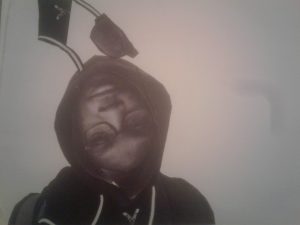I’ve learn a lot about tone in color during this project. How to focus on something in a picture just by using light and dark tone. I’m not really used to painting so this is a new experience for me. This is one of the Projects I enjoyed the most because I’ve see art a lot different then I use to.
Links:
Phase 1:
https://openlab.citytech.cuny.edu/rosenspevackfylcf18/2018/11/05/value-added-portraits-phase-1-5/
Phase 2:
https://openlab.citytech.cuny.edu/rosenspevackfylcf18/2018/11/05/phase-2-define-completed-collages-2/
Phase 3:
https://openlab.citytech.cuny.edu/rosenspevackfylcf18/2018/11/12/value-added-portraits-phase-3-3/





